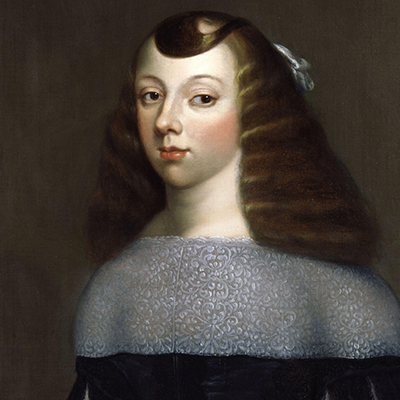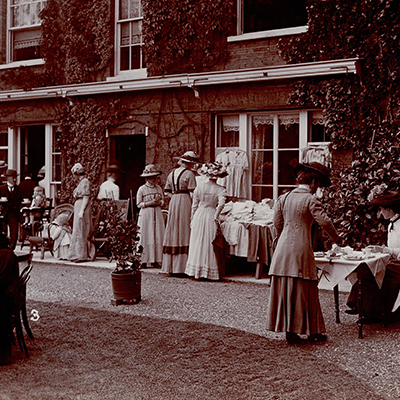Spilling the Tea: Women and the Social History of Tea in Britain
Tea was introduced to England during the reign of Charles II in the 17th century. He'd become a tea drinker while in exile in Europe after the English Civil War and brought the beverage back when he regained the Crown. While Charles II may have brought the tea, he did not make it popular. That was his queen. Portuguese Catherine of Braganza had grown up drinking the beverage and brought the custom with her when she moved to England. At the time, women were barred from coffeehouses where most tea was consumed, but Catherine would have tea in her chambers, often inviting friends to join her. The queen’s interest brought teatime into fashion and gave women, isolated by their confinement to the domestic sphere, a social community. They would take tea with other ladies in their own private rooms, a valuable therapeutic opportunity for them to enjoy friendships and escape the loneliness caused by the rigid social rules of staying home.

Portrait of Catherine of Braganza, c. 1660-1661
As the popularity of tea grew, women moved out of their small private quarters to larger drawing rooms. By the mid-1700s, elaborate rituals were created along with a new set of manners. The tea was always brewed by the lady of the house – rather than left to servants – and was a rare instance of when the women were in charge. Tea was mostly consumed after dinner, when women would retire to the drawing room to take tea while the men remained in the dining room. Separated from the men, women were able to freely talk with one another, forge intimate friendships and relax. A few women went even further, creating another room farther away from the drawing room to muffle the sound of the men and to give themselves more privacy.
As tea became more readily available and less expensive, lower class women, yearning for their own social interactions and companionship, would create impromptu afternoon tea sessions of their own. They invented “Tea Clubs” where they would pool their resources and meet at each other’s houses to unwind after a hard day and enjoy conversation with their friends. While often not as socially isolated as wealthier women since they were required to work, teatime still provided them important emotional support by nurturing female friendships.
Not only did teatime benefit women socially, it also proved invaluable towards creating their own economic independence. Women had no legal rights and were barred from owning and operating businesses. However, because tea was by this time associated with femininity – and they served an all-female clientele with an all-female staff – women were able to bend the rules and open their own tea houses. This gave them entrepreneurial and monetary freedom, made them less reliant on men, and opened the door to creating businesses beyond the realm of tea.

British Suffragettes Serving Tea at a Garden Party
Eventually, it also birthed a revolution as teatime played a crucial role in the Victorian suffrage movement. Men often dismissed the women’s teatime conversation as idle gossip and “nattering,” and considered tea houses beneath them, so they paid little attention to them. Women used this trivialization to their advantage and the privacy of tea houses to strategize suffrage movements and mobilize their operations. They could freely express “unladylike” thoughts and feelings and translate their anger into coordinated resistance. They were also able to reach a larger female cross-section of society as tea houses were a class-leveler; women from all across the social spectrum could join the conversation, find sisterhood, and embrace the quest for equality. When World War I broke out and women suspended many of their activities to focus on the war effort, they also kept their tea houses open as a source of comfort and national pride. This was the final push needed and British women gained the right to vote in 1918 with full suffrage in 1928.
Nowadays, fancy afternoon teas and tea houses are relegated towards special occasions or put on for tourists. But a backyard cup of tea with good friends will never go out of style. Just like Caryl Churchill’s plays, tea is deceptively simple, subversively feminist and exceptionally enjoyable. Cheers.